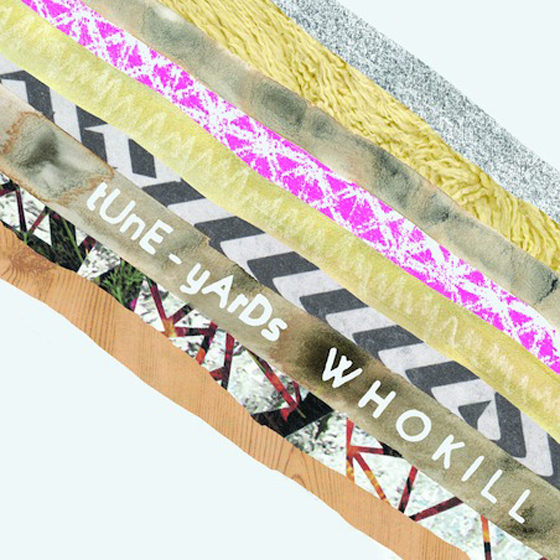In an age where it feels like perpetual catch-up as the music world races by, tUnE-yArDs are an easy project to like. It has only been two years since Merrill Garbus released her homemade project, BiRd-BrAiNs, on cassette and quickly found a home on major indie label 4AD. Thus, becoming acquainted with creative looping and patchwork song creation of Garbus in 2011 doesn’t place you far behind the curve. But, to hear W H O K I L L, tUnE-yArDs’ second album, in comparison with BiRd-BrAiNs is to realize that Merrill Garbus may be new to game, but she is improving at an exponential rate.
Gone is the bedroom-project quality, and in this case, it is a wildly successful move. “Powa,” Garbus’ strongest song to date, allows the listener to hear both sides of tUnE-yArDs, opening with distant ukelele stums and the singer’s manipulated voice for a few bars, then suddenly kicking into hi-fi with distorted guitar and drums in demonstration of the power of proper recording. But Garbus’ voice makes “Powa” truly special, tap-dancing with ravenous hunger through the verses and ultimately ending with delicacy that makes the high-note finish feel like a kiss from music itself.
Like associated act Dirty Projectors, dub rhythms and vocal references are thrown freely about, causing eye-rolls as frequently as fist-pumps. “Gangsta” comes with references to “rasta” and “hoods” that feels like a stretch, but the siren-like (police car, not Odyssey) melody is so off-the-wall, that it suckers the listener in through a web of intrigue and pure melodic bliss. It is a mess of a track like a Picasso is a mess of a painting. Other tracks sport slangy titles (“Bizness,” “Killa”), creating confusion as to how cool Merrill Garbus really is, because if you have seen tUnE-yArDs in concert, the last thing they will seem is “cool.”
But that really speaks to the heart of W H O K I L L. It is an album, like Bitte Orca or even Tomboy, that seems to want to break down the paradigm of what we think of as “cool” or “hip.” Though the album now comes with studio polish and masterful songwriting, W H O K I L L still feels like an underground tape, challenging the listeners with oddball melodic choices (the kitchen-sink explosion in “Riotriot,” the sparer-than-spare six-minutes of “Wolly Wolly Gong”) and paying them off in pop bliss moments, like the entirety of “Bizness.” In the end, the success of the record hinges on whether you buy into the project in the first place. Believing the words of Garbus is less important than if you believe she is making important music, creative music, and, well, good music. And where some cuts leave this up for question, returning to “Powa” half a dozen times or so should be enough to persuade that W H O K I L L is more than internet hype, that indeed something special is happening on this record. I think.

